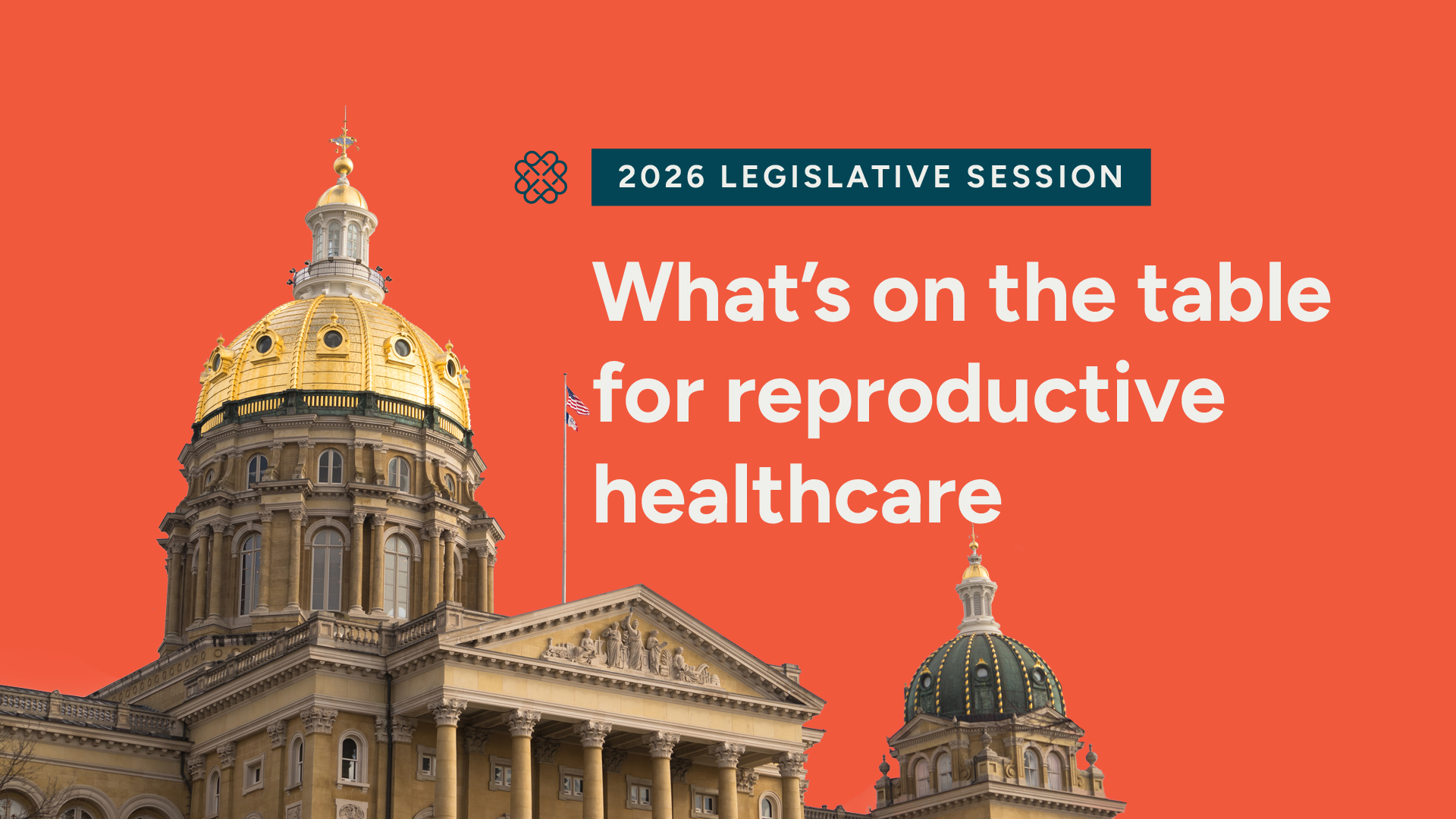
Since 1973, when the U.S. Supreme Court decided Roe v. Wade, abortion rights were considered a protected part of healthcare in America. But that changed in 2022 when the Court overturned Roe with its decision in Dobbs v. Jackson Women’s Health Organization.
Now, each state can regulate or ban abortion however it chooses. In Iowa, that’s led to a 6-week abortion ban with limited exceptions. But the real impact goes deeper: it’s not patients facing punishment under this law, it’s their doctors.
Having overturned Roe with their Dobbs decision, the Supreme Court gave states and the federal government the ability to regulate or ban abortion care pretty much as they wish. States can now do everything from banning abortion to allowing it as they did before. Congress could enact a nationwide law regulating abortion care, but it hasn’t yet.
Every state’s new abortion landscape is now unique, and Iowa’s is no exception. Iowa’s law bans abortion after fetal “cardiac activity” can be detected with ultrasound. That usually occurs around the sixth week of gestation. There are some exceptions to this rule. If the pregnancy is the result of a rape or incest, then an abortion can be performed later than six weeks. If there is a fetal abnormality or a medical emergency for the pregnant woman to continue the pregnancy, then an abortion can also be performed past six weeks of pregnancy. While the exceptions seem straightforward, they often are not. More on that later.
Iowa’s law, like many others, does not actually criminalize pregnant women who seek or obtain an abortion. Instead, it subjects physicians to disciplinary proceedings by the state’s Board of Medicine if they break the law. The board could do everything from reprimanding a physician for violating it, or they could terminate their license to practice medicine.
While it’s a good thing women aren’t prosecuted by the law, having the Board of Medicine determine whether a doctor broke the law, particularly if an abortion met an exception, is not easy. The Board of Medicine is made up of physicians and medical practitioners, who will sit in judgment of a physician’s decision to provide an abortion.
If you think carefully about whether a “medical emergency” exists to provide an exception to the six-week ban, the law doesn’t provide any good answers: it says a medical emergency is a physical—not psychological—condition that, in the doctor’s reasonable medical judgment, necessitates the termination of the pregnancy to avert the woman’s death or will create a serious risk of substantial and irreversible physical impairment of a major bodily function.
While law defers to the doctor’s medical judgment, the Board of Medicine is the ultimate arbiter of whether the doctor was right in determining a number of things:
Was the abortion necessary to avert death?
The OB-GYN’s who are often asked to provide abortion care are not emergency room or trauma physicians. One condition for one woman may be life threatening in the eyes of the OB-GYN who provided the cares that threaten a patient’s life. What would the other doctors on the Board of Medicine think, though?
What’s a “substantial and irreversible physical impairment of a major bodily function”?
It sounds easy, but other people will ultimately decide if the doctor’s assessment was right. How long, for example, must a physician wait for a patient’s condition to deteriorate and threaten a “major bodily function” until its allowable for the doctor to perform an abortion? The law creates big incentives for physicians to wait until the patient’s condition gets close to being irreversible, and other practitioners on the board are ultimately going to decide whether the condition was “substantial.”
Treating patients for life-and-death outcomes is already stressful enough. Now in Iowa, you have to worry about losing their medical license for it too.
Some supporters of the law argue these critiques are overblown and say physicians providing abortions past six weeks for “good faith” medical emergencies, fetal abnormalities, abortions, or rapes will never get disciplined. In reality, though, most doctors just don’t want a law like this over their head. So, they don’t practice here. An OB-GYN will see thousands of patients over their career. If you’re thinking of starting a career in that specialty, is it best to practice in a state where the medical board can second-guess your decisions and take your license (and livelihood) away? Or would another state be better? As you’ll often see from our research here, a lot of physicians are thinking another state is better.
When laws are unclear and the consequences are steep, doctors stop practicing, or they never come to Iowa in the first place. The result? Fewer OB-GYNs, less access to care, and more pregnant patients left in dangerous limbo.
It’s not just about abortion, it’s about whether Iowa can retain the healthcare workforce it desperately needs.
When physicians are afraid to act in the best interest of their patients, we all pay the price.
For more reproductive rights information and updates on Iowa healthcare access, visit our resources page or sign up for our newsletter.
Empower change.
Sign up for our newsletter and stay informed on reproductive healthcare issues in Iowa.




